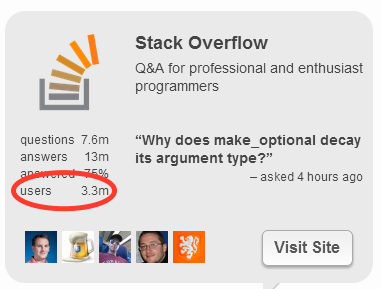Foreword: upon reflection my answer seems somewhat... elitist. I don't mean it to be, it's observational. Just hear me out, hopefully some of what I say will get someone else thinking, hopefully it promotes discussion.
In some ways the behaviour of a new user follows a pattern:
- they are too lazy (or lacking in smart stuff) to research their problem so they write a bad question
- when the question is downvoted they are too lazy (or lacking in smart stuff) to research why they may have been downvoted
So they fail twice because of a lack of that "smart stuff". As a result they lash out with accusations of elitism because it's the only response they can think of.
I blame a newer generation of programmers who have access to levels of information never dreamed of when older members were learning the trade. They've got access to so much information that they graze and wander like cattle, never settling in to learn any subject in depth.
I also blame Google for feeding them instant answers. Have a problem and don't know the answer? Just query it in Google! Is Google giving you too much information and hurting your poor little brain? Then just query Stack Overflow, it's even smarter than Google!
Lastly I blame the hacker mentality, Stuart Brand and Steve Wozniak for promoting the concept that "Information wants to be free". I mean c'mon now - I sweated bullets and did some very late nights for some of the information I've learned!
What can we do to fix this?
I think we can do very little. It might sound cliche, but people have to want to be helped, they have to want to improve, and very few new users want either of those. They just want that instant information, and they want it now! kthxbye!
Above all we have to remember that not everyone who comes into the site is going to be a valuable contributor. Nobody likes elitism, but we do have the right to demand a certain calibre of participation in this knowledge resource that we're aggregating.
We can automatically insert a pre-emptive explanatory comment when they're new and they get a few downvotes, but we can't make them read it and understand it, and we can't make them read the help centre.
Like Bart Simpson with the electrified cookie jar, we just need to keep "reminding" them of the house rules when they come in.
Follow up
This has been good, it's produced some discussion. Let me cherry-pick a quote from the comments:
Stackoverflow is supposed to be an open supportive community.
That is absolutely correct. But notice that it doesn't say "Stack Overflow is a support forum with endless help for people who need to be spoon fed."
Let's be brutally honest here: Stack Overflow is not an endless free resource where you can turn up and get expert help for any dumb question you care to throw at it. The SOFU sites were started with the aim of achieving a certain goal, there is a plan. Giving up on standards and giving in to the demands of a vocal minority to turn this into an open ended support forum is not going to achieve that goal. Therefore a certain level of elitism is required, it helps to produce quality and keep the signal-noise ratio low (which is one of the key differentiators for this site).
The rules exist for a good reason I think and instead of down/close voting bad questions which clearly does not work people should teach them how to write a good question.
It's not our job to teach you how to write a good question. It's your job to learn how to ask a good question that has all the relevant information. Jon Skeet wrote an excellent article on how to ask a good question, and it's linked to from the help centre (as well as being quoted many times over as the definitive source). You could argue that Stack Overflow done everything possible for new users, short of reading their minds and generating the questions for them.
At some point you have to give up and realise that it isn't the rules, it isn't the environment, some people just don't get it.
